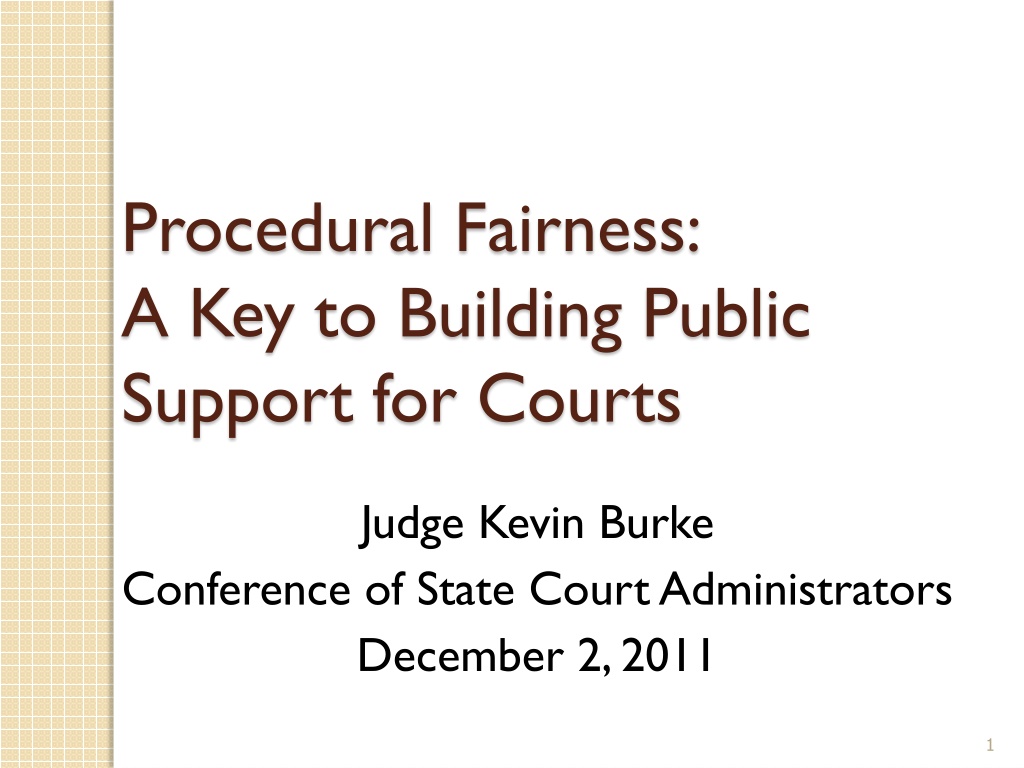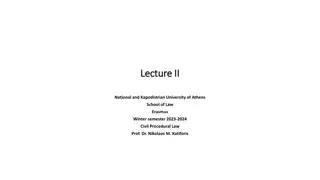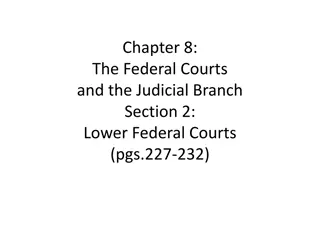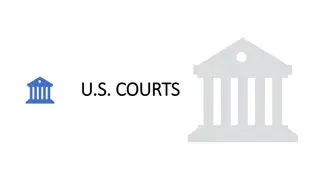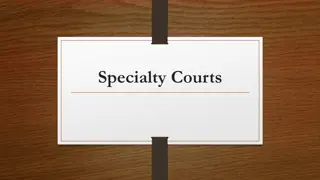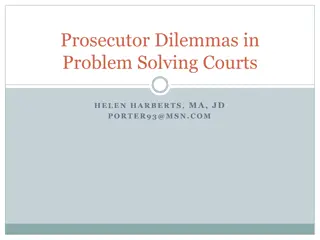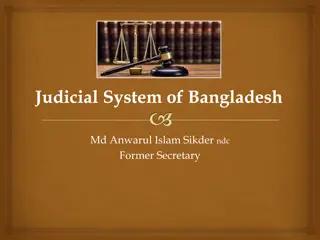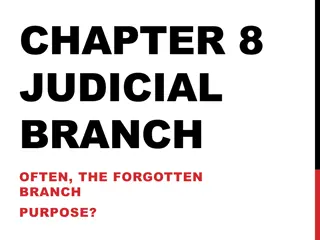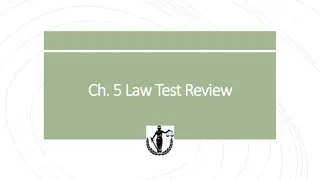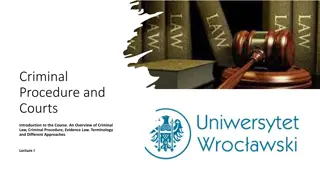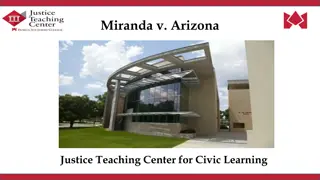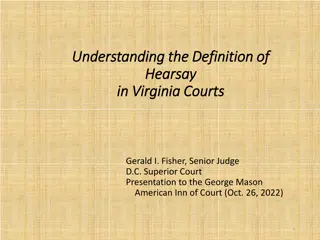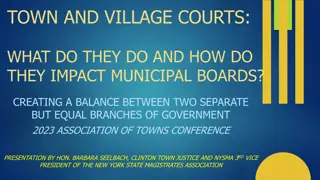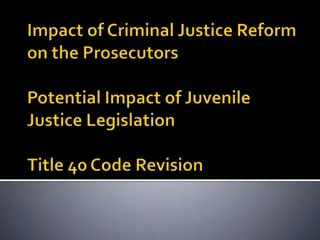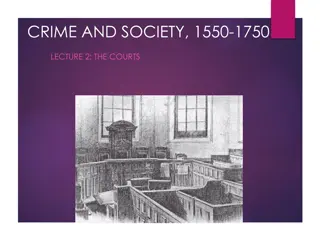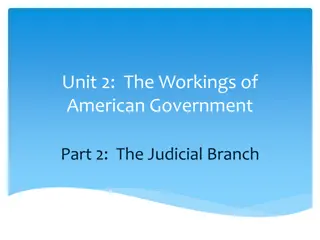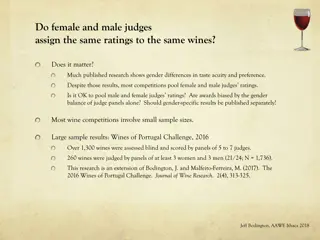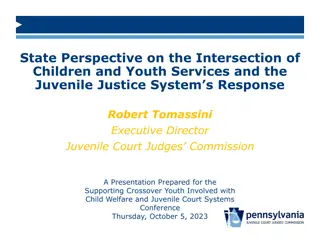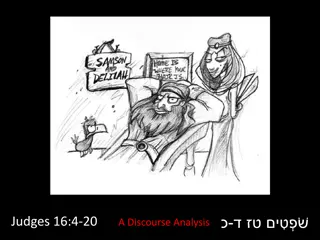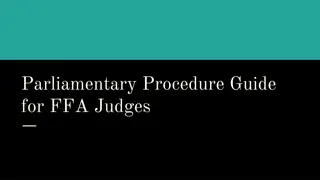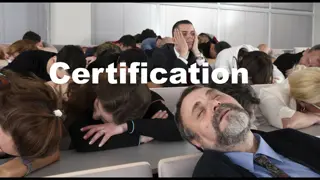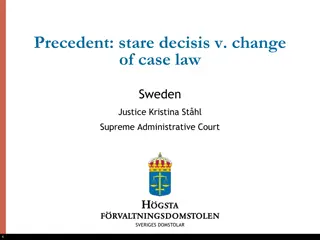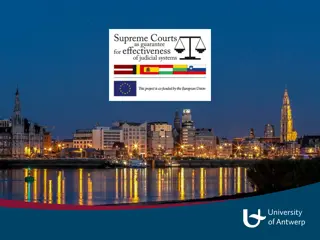Understanding Public Perceptions of Courts and Judges
Exploring public opinions on procedural fairness in courts, this content discusses the influence of judges' political views, aspirations for higher courts on their impartiality, and the divided nation on interpreting the Constitution. It also highlights the complexities of public knowledge about the judiciary system, emphasizing the significance of procedural fairness in building public trust.
Download Presentation

Please find below an Image/Link to download the presentation.
The content on the website is provided AS IS for your information and personal use only. It may not be sold, licensed, or shared on other websites without obtaining consent from the author. Download presentation by click this link. If you encounter any issues during the download, it is possible that the publisher has removed the file from their server.
E N D
Presentation Transcript
Procedural Fairness: A Key to Building Public Support for Courts Judge Kevin Burke Conference of State Court Administrators December 2, 2011 1
What people want is an America as good as its promise. - Barbara Jordan What people want are courts that are as good as their promise courts that are fair, efficient, and effective 2 2
Topics What the public thinks about courts and judges An overview of procedural fairness Can it succeed with a large group of judges? 3
In your opinion, to what extent to you think a judges ruling is influenced by his or her personal political views to a great extent, moderate extent, small extent, or not at all? Great extent Moderate extent 33% 42% Source: Princeton Survey Research Associates International Poll for the Annenberg Public Policy Center www.annenbergpublicpolicycenter.org 4
In general, to what extent do you think a desire to be promoted to the next higher court would affect a judge s ability to be fair and impartial when deciding a case to a great extent, moderate extent, small extent, or not at all? Great extent Moderate extent 35% 40% Source: Princeton Survey Research Associates International Poll for the Annenberg Public Policy Center www.annenbergpublicpolicycenter.org 5
THE NATION IS DIVIDED ON HOW TO INTERPRET THE CONSTITUTION 70% of Republicans say the Constitution should be based on its understanding of the Constitution as originally written 65% of Democrats believe that judges should base rulings on what the Constitution means today 6
Caldeira And McGuire argue that public knowledge of courts is more nuanced and complicated than typically thought Citizens tend to know about court decisions of local interest Citizens tend to know about court decisions that directly affect them Highly salient controversies often penetrate the consciousness of the American people Source: Gibson & Caldeira, Knowing About Courts 7
There is a lack of trust in our public institutions which although not focused specifically on courts is potentially dangerous 8
Why fairness is hard for us to define. Outcome favorability Did I win? Outcome fairness Did I get what I deserve? Procedural fairness Was my case handled through fair procedures? 9/29/2024 9
Why should you be interested? Procedural fairness works. It encourages decision acceptance. It leads to positive views about the legal system. A system-wide commitment to a litigant s bill of rights may be the best way to enhance public trust in the courts 10
Maybe weve got something here . . . Study reported in 2008 says perceived fairness triggers brain reactions similar to eating chocolate or seeing a pretty face 11
Justice Research in Academia Litigants have a powerful need to express themselves vocally during the court s proceedings Body language influences how litigants perceive the judge and the judge s decision Unlike the public, judges focus on the fairness of case outcomes instead of the process Case volume of courts is a management challenge for judges, not an excuse for de-emphasizing procedural fairness Perceptions of procedural fairness may differ among minority and majority populations 12
Lawyers vs. the Public: Predictors of Confidence Source: 2005 California survey 13
Why should Court Leaders care? Fact 1: You re not getting more resources anytime soon. Fact 2: Enhanced procedural fairness has been shown to increase compliance with court orders, which reduces caseload Fact 3: In case you have not noticed, there are people that want to cut the budget further. 14
Black Robe Disease It is fatal. There is no known cure. If you don t think you can get it, you are practicing unsafe judging. Black robe disease will most likely affect your entire court culture. 15
The Court Litigant Bill of Rights 100% of the time you have a right to be listened to to be treated with respect to understand why the decision was made 16
What data do we need in order to measure whether or not we are achieving fairness? 17
After you confess, can you fill out this survey to help us improve our interrogation methods?
CourTools 19
Are the Courts as good as they can be? Is 99.9% right good enough for us to claim we are a quality court? 20
Training How well do I prepare, monitor, and correct my concentration so that I may stay focused on what a speaker is saying? How well do I build a complete and accurate understanding of the speaker s message? Do I abide by the golden rule of listening: listen to others as I would like to be listened to? 21
Summing Up This stuff works with the public. We aren t naturally attuned to the way court participants view us. We face a time of budgetary limits, but application of these concepts can help us to improve perceptions of our performance even in times like these. Judges can act on these things on their own. Work on listening skills Judges can videotape themselves in court and then review the tapes by themselves or with the help of others. 22
A Call to Action We need a few states to band together We can provide training and materials to new judges if we know who they are We need a commitment to data collection We need COSCA s leadership commitment to enhance procedural fairness in our courts 23
